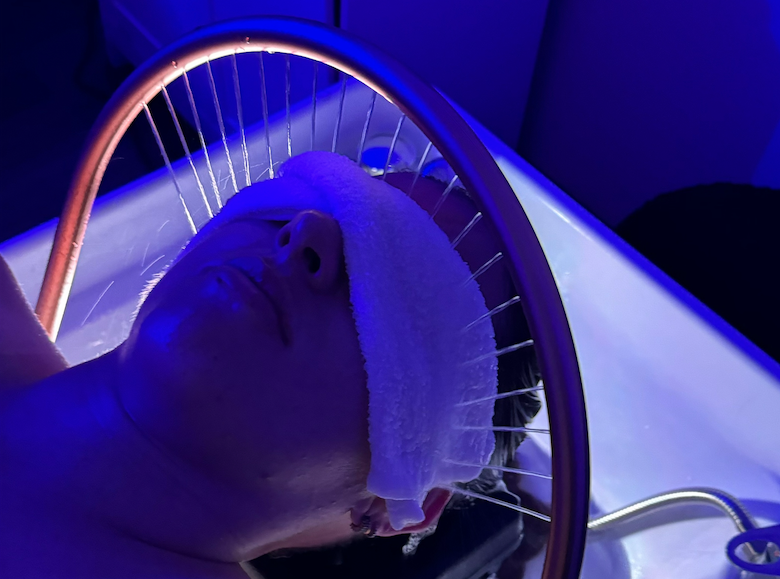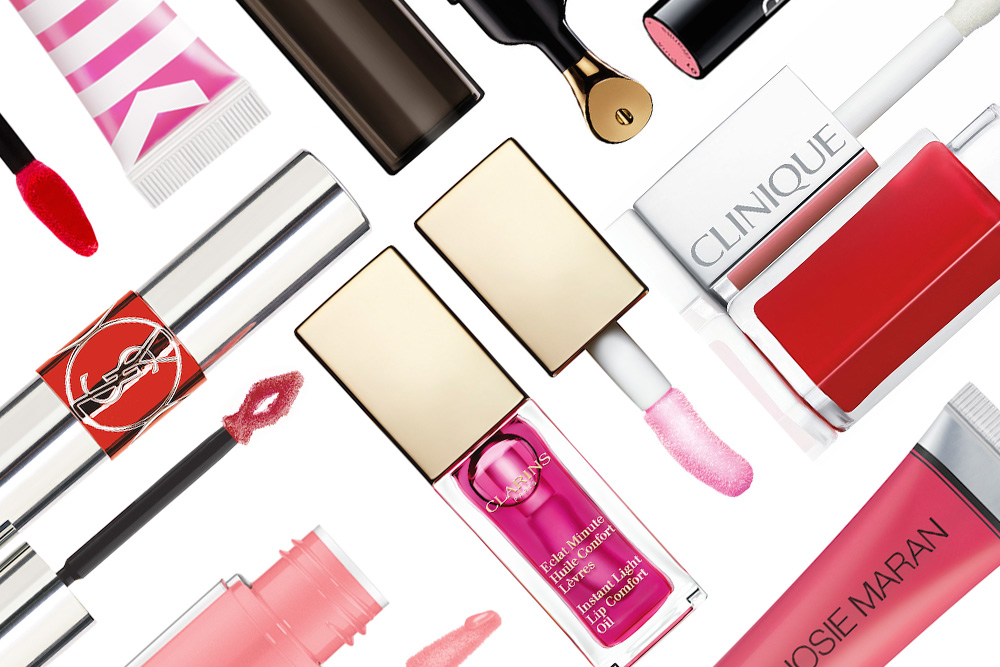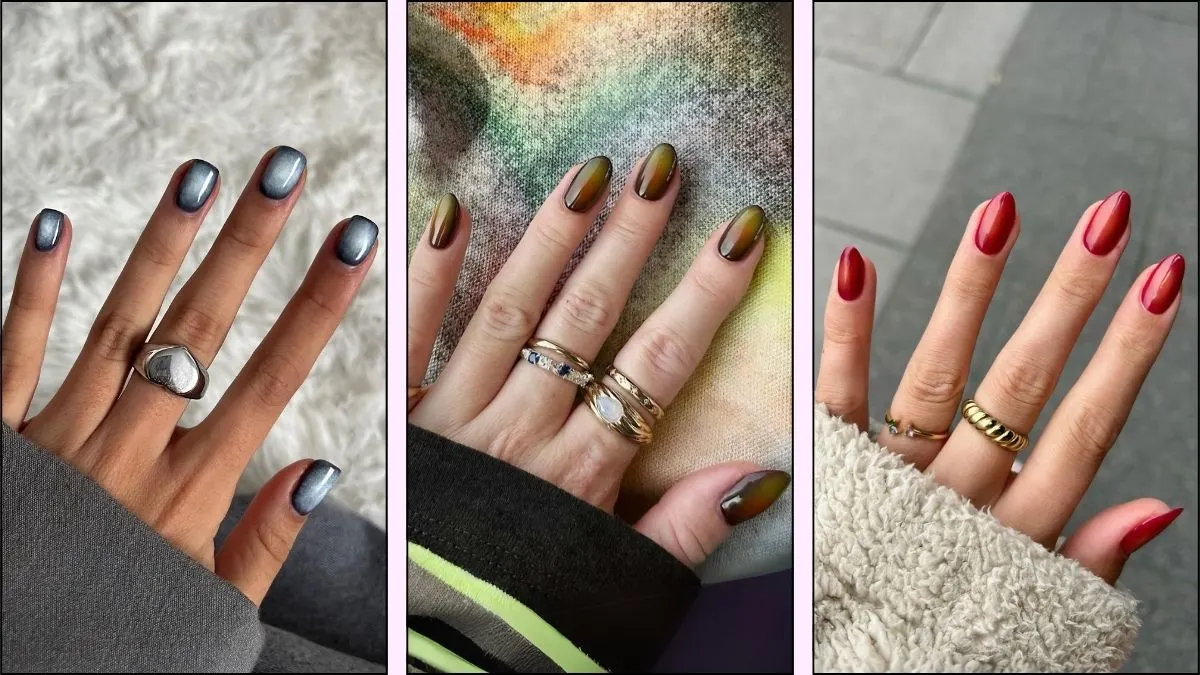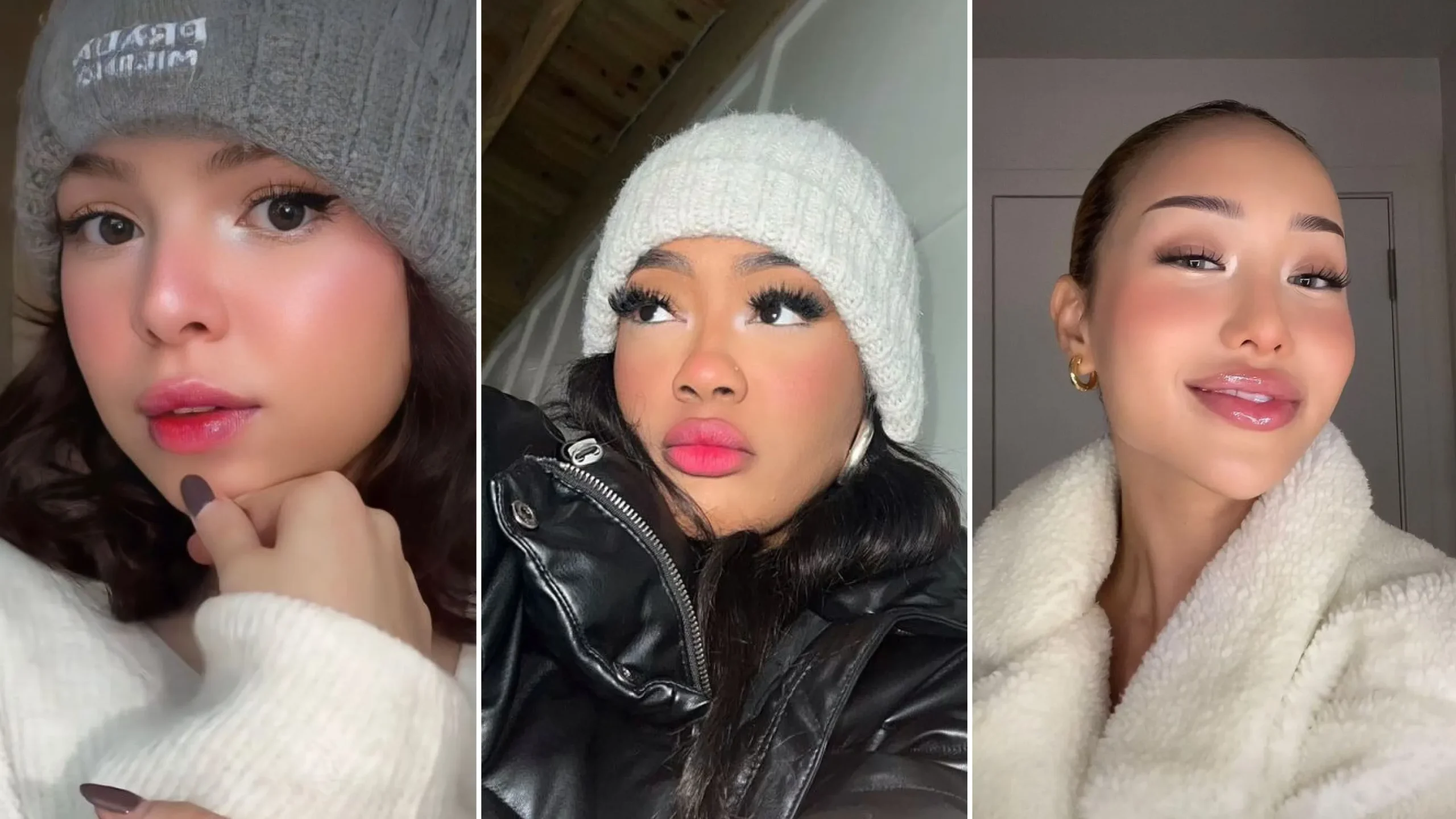There are a wealth of articles on the web about traditional vs airbrush foundations, which is best, and what are the differences between the two. Today, we’ll revisit all of those things, but we’ll also focus on the real reason why you need to offer airbrushing as a professional makeup artist.
Recently, I saw a post on social media wherein an artist said that she “believed” in traditional makeup and that she thought airbrushed makeup was a gimmick. It was a lengthy thread and I was surprised at the mix of responses. They reminded me a lot of myself eight years ago. Resistant. Stubborn. Don’t. Wanna.

I was introduced to airbrushing for makeup in 2011 at a workshop in Chicago and as it challenged my skill and, subsequently, my confidence I was all, “Nope! Screw this! What a fricken pain in the butt!” I set my Temptu S-One compressor and S/B formula to rest and continued doing what was comfortable — hand-applying cream makeup to all of my clients.
Airbrush and I met again about a year later during my formal makeup training and THIS TIME there was no escaping it. I had to learn it. Pouting ensued but I hid it well. I pushed through the material, but still wasn’t airbrushing my own clients. When I would talk to other artists, there were a load of reasons why people thought it was fantastic. Here are some of the common reasons why people love airbrushed makeup:
 |
| One of these was airbrushed and the other was hand-applied. Can you tell which is which? |
1) Airbrushing Looks Flawless on Camera
Airbrushing lays the makeup onto the skin in thousands of tiny dots — just like pixels, which is exactly how a camera converts the light coming into the lense into the picture. This is how airbrushing can look undetectable on camera.
Is this a myth? No, it’s not. Airbrushing, when applied correctly to well-prepped and appropriate skin, can look invisible on camera, making your client look as if they have naturally flawless skin.
But, you can achieve similar results with traditional makeup. There are plenty of ways to adjust your skin prep, foundation, and technique to achieve a flawless finish without the airbrush.
Regardless, the better condition your client’s skin is in, the better any makeup will lay — airbrush is not magically going to make dry, parched, Sad Panda skin glowy and smooth.
This is not the reason you should offer airbrush, though.
2) Airbrushing Feels Lighter
When applied correctly, airbrushing can achieve more coverage than traditional foundation with less product and FEEL like less product. By adjusting your technique, you can achieve anything from sheer to full coverage with anywhere from 4 to 12 drops of foundation.
Can you get similar results with traditional makeup? Yeah, kinda. You may need to manipulate your foundation formula and spot paint, but you can definitely achieve similar results with traditional makeup.
This isn’t the reason why you need to offer airbrushing, either.
3) Airbrush Is Waterproof And Lasts All Night Long
In terms of airbrush being waterproof — “waterproof” is not the correct term, though. Water-resistant is more accurate and it depends, again, on the client’s skin condition and the airbrush foundation’s formulation.
In terms of longevity: airbrushing goes on in such thin layers that it should, in theory, hold up to heat, humidity, and all the rigors of a performance or wedding. In theory, yes. Correctly-applied airbrushed makeup should hold up well for hours. How many hours? Depends on the client’s skin and what that skin is doing throughout the night. If the skin is super oily, great longevity may be defined as 4 hours before needing to blot where an application on dry skin is considered long-lasting if it survives 10 or more hours. If the client has been Kim Kardashian Krying at their wedding, running a marathon, or incessantly wiping their nose, then airbrushed makeup may not survive.
You know what else can stay bulletproof throughout all of that? Expertly-applied traditional makeup. You know what else won’t survive a Kleenex attack after 2 hours of outdoor photos and a runny nose? Traditional makeup.
So, this isn’t the reason you need to offer airbrushing, either.
4) Airbrushing is More Sanitary
This is definitely true! Airbrushing doesn’t require a brush to make any contact with the skin, so, in theory, it’s more sanitary. Airbrushing also presents less friction on the skin, which is much better for clients with dry, sensitive, or generally grumpy skin.
Still not why you should offer airbrushed makeup, though….
Why should every bridal makeup artist offer airbrushed makeup if you can get similar results/benefits with traditionally-applied makeup?
BRIDES. REQUEST. AIRBRUSH.
Brides request airbrushed makeup and they request it often. In my own bridal business, 88.33% of our brides have requested airbrushed makeup since we started tracking in 2012. If we didn’t offer this service, how many of those brides would have moved on to another artist who does offer airbrushing?
Regardless of whether or not you can achieve similar results with traditional makeup, you are 100% walking away from income when you don’t offer it. Remaining resistant to learning this skill takes you out of the running for bookings and that’s just bad business. I had to figure this out when I started focusing on bridal and although I rarely airbrush for commercial jobs, I haven’t done more than 4 traditional applications on a bride in the last six years.
Some artists upcharge for airbrushing and others do not. There are reasons for both.
Let’s take this example:
- Lisa charges $150 for bridal makeup and an additional $50 for airbrushing.
- Jennifer charges just $175 for bridal makeup and no upcharge for airbrushing.
- Mary charges $160 for traditional makeup and does not offer airbrushing.
In this example, the client can compare quotes from Lisa and Jennifer but if she’s hell-bent on being airbrushed, she’s not even going to consider Mary’s quote and that’s sad.
Airbrushing isn’t a new technique, but it’s been en vogue for about ten years and it isn’t going anywhere. I’ve even had the occasional production job that requested airbrushing. Learning this skill keeps you relevant and qualified for more jobs and that’s just good business in this ever-changing industry.
Do you have hangups about learning airbrush? Have you felt like other airbrush workshops focus more on getting you to buy products vs teaching you the techniques? Well then…











